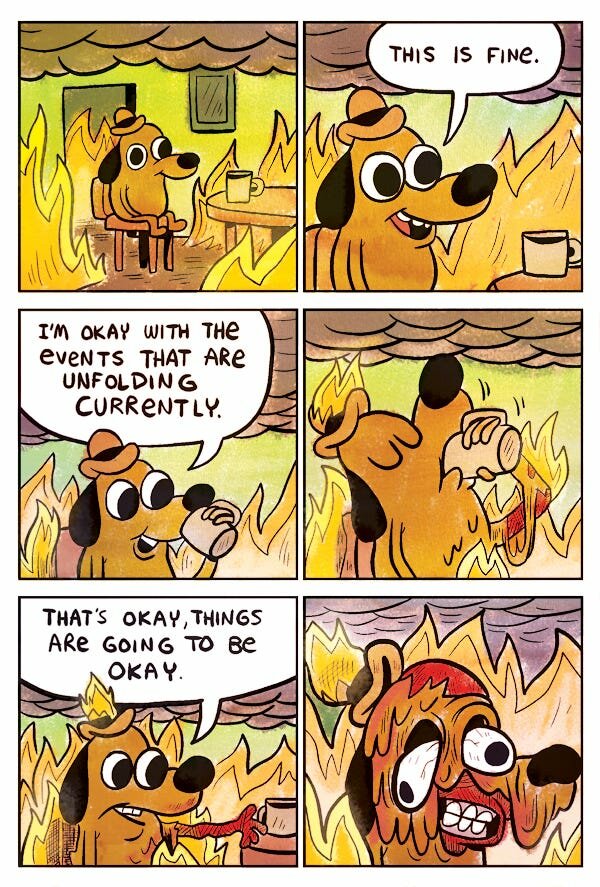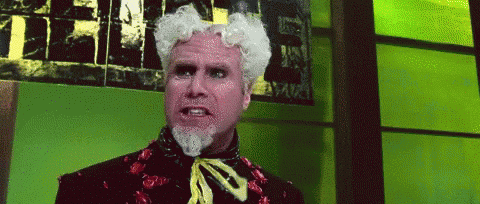The Party That Can't And The Party That Won't
It's the neoliberalism, stupid

Approximately every three years I indulge in a bit of political punditry, which is about as much as I can stand. It’s nearly that time again, which is my opportunity to do something pundits almost never do: see what they got right and wrong.
Here’s what I wrote after the last election, for the much-missed Public Address:
But if I was to write my own hot take, based entirely on the undeniable fact of a left-wing election landslide, post-hoc anecdote and my own keen understanding of “the vibe,” it would run like this:
Labour won because they demonstrated competence. The end.
You can read the rest if you want but that really is the crux of the argument, and I stand by it. At the beginning, the Labour-led government handled Covid-19 well, especially compared to practically every other country on Earth. The proof is out there: unlike many nations that suffered enormous excess mortality, New Zealand experienced the opposite. The Government saw what was needful, and they did it. Numerous, perhaps inevitable, flubs aside — and despite endless attacks from the political Right and their mouthpieces in the media who were incapable of comprehending disruption to their precious status quo — the public saw it, and Labour were rewarded for it with the only single-party majority government ever formed under our brand of MMP.
But that’s not where the article ends. Foolishly, I let myself be optimistic. Perhaps Covid was just the start: perhaps seeing that doing the right and needful thing could also be extremely popular with the electorate would set Labour up to do the urgent work on our neglected “nuclear-free moment,” climate change — and on health, and housing, and the cost of living, and every other facet of New Zealand’s polycrisis.
People who vote for an left-wing party with explicitly left-wing principles should be rewarded with left-wing policies.
Voters delivered the Left their election victory based on their rediscovery of the power of government to aid society; and to stay in power, they’ll need to continue wielding it.
And that, of course, did not happen. Boy did it ever not happen. Now, almost three years later, we are faced with a return to a ruined status quo, and a seeming choice between two broken political alternatives:
The Party That Can’t and the Party That Won’t
Let’s get some definitions out of the way. When I say “can’t” or “won’t,” I am talking about what we ostensibly elect political parties for: to do the needful. And for the avoidance of confusion, the Party That Can’t are Labour. The Party That Won’t are National. We’ll get to them, but Labour are the government so they go first.
The Party That Can’t
The Covid-19 pandemic was still raging1 when Labour began to regress to its mean: a milquetoast, ineffective, appeasing, ever-so-slightly blunted version of the neoliberal status quo designed to appeal to “centrists” and in fact intolerable to anyone but the most determined party apparatchiks. Modern Labour’s can-kicking methodology is wearingly familiar to anyone who watches New Zealand politics for sufficient time:
- Commission a review on a really obvious problem, often carefully adjusting the terms of reference so no truly transformative measures are possible
- Do nothing while the review takes ages to report back and spends a bunch of money
- Seriously consider the review’s sensible, often restrained, recommendations. Put out a press release, and
- Do nothing
- Repeat until all your ministers have done something stupid and the electorate hates you.
A list of all the reviews Labour has commissioned would be too long to write up (and, inconveniently for journalists but conveniently for Labour, there appears to be no central repository of them) but here are some highlights: they did almost nothing about the electoral review that recommended a voting age of 16, they did almost nothing about the welfare working group report that recommended sweeping changes to our cruel welfare system, they did almost nothing about the tax working group that recommended a raft of desperately-needed changes, even with a capital gains tax specifically excluded from their terms of reference, and they did nothing meaningful about the Commerce Commission “market studies” into the grocery sector, retail fuel prices, and residential building supplies. The results of flagship policies like Kiwibuild, an emissions scheme for farmers, an Auckland Harbour bridge crossing for the vast majority of things that aren’t cars, and light rail for Auckland are, in order: fucked it up, fucked it up by appealing to an industry who hates them, dithered to the point of absurdity before fucking it up, and didn’t even fucking start despite spending $44 million on consultants. Then there’s the things they’ve ruled out: asinine “Captain’s calls” on capital gains taxes and other issues that are popular with the electorate, while committing political seppuku with widely-loathed measures like petrol taxes. Labour, under Jacinda Ardern, failed to back cannabis reform so sensible that Canadians were into it. Consequently, the (needless) referendum was lost by a hair after opponents of reform were allowed to lie endlessly about the proposed law, with no correction from the Prime Minister or her Government. New Zealand now rejoices in an absurd situation where sufferers of chronic illness can choose to be euthanised for free but have to pay through the nose for medicinal cannabis.
Labour also scored remarkable own goals by begging for the support of teacher and nurse unions at election time, then cynically denying overdue pay rises, leading to protracted strikes when school students and patients could least afford them. Even the reform Labour did manage to get off the ground — including centralizations of long-neglected healthcare (Te Whatu Ora) and water services (Water Services Reform Programme, née Three Waters) — were not explained or promoted with any kind of due care, which enabled right-wing astro-turfers like the Taxpayers Union to spread misinformation, seeding the rise of racist groups like Stop Co-Governance. To this day, you cannot drive past more than a couple of dozen houses in my town before encountering a Taxpayers Union-provided Stop! 3 Waters2 sign. What’s more, this reform has come so late that it’s far from entrenched, making it effortless for an all-but-inevitable right-wing government to repeal.
They didn’t get everything wrong. What’s most infuriating about what they screwed up is what they got right. It bears repeating: New Zealand’s Covid response was unparalleled in its excellence. Covid is now one of New Zealand’s leading causes of death, having killed over 3000 people and with 1000 more set to die of it by the end of 2023, but research shows that an astonishing 20,000 lives were saved by our response. Twenty thousand priceless people, alive, who — if they’d been in nearly any other country, or if New Zealand had followed the ignorant urging of right-wing politicians and opinionist media — would almost certainly have been killed. This is heroic. The triumph should be shouted from the rooftops; it should go down in history. If there’s any justice, it will.
There were other wins. Increasing the minimum wage was consequential for the working poor, who would never see the Right’s proposed tax cuts for higher earners. Labour enabled Kainga Ora to build a lot of public housing.3 Doubling sick leave entitlements from a paltry 5 to a slightly better 10 days was not only humanitarian common sense but good for the economy. The wave of fascist anti-LGBT sentiment experienced by many countries seems to have broken before hitting New Zealand, with the result that Labour managed to pass laws banning harmful conversion therapy and reducing barriers to gender self-identification. Labour also delivered much-needed abortion law reform, removing abortion from the Crimes Act.
But you can — and I will — argue that much of this, excepting the Covid response, amounts to fiddling on the margins of what’s possible, and doesn’t even approach doing the needful to New Zealand’s current polycrises: health system collapse, housing, education, transport, the cost of living, and most of all, climate change. What’s more, our Covid response has declined from world-beating to practically non-existent. Expert urgings to implement non-intrusive, cost-effective measures to prevent illness and death from not just Covid but other respiratory illnesses — primarily by improving ventilation in buildings and mandating masking in healthcare settings — have, characteristically, been ignored or fumbled.
Naturally, New Zealanders are deserting this festival of incompetence in droves. Which leads us to:
The Party That Won’t
“Labour,” the logic seems to go, “has proved incapable at tackling the systemic issues that beset New Zealand. Therefore, let’s elect… the other guy!”
This mindset is encouraged by the political media, many of whom love nothing more than promoting the perception of a two horse race. Labour are (often justifiably) ripped down, just as National (utterly unjustifiably) are lifted up. This is far from universal. The one great law governing media is the promotion of conflict, and when conflict can be juiced from telling the truth about National’s blunders, the news will Do Its Duty. We see this in the treatment of National’s unworkable tax plans and fantastical costings, which — while first uncritically hailed by Newshub’s Jenna Lynch as a “masterclass of political marketing” — have now become a millstone around leader Christopher Luxon’s neck, sparking fiery interviews and scorching op-eds. It’s funny because Luxon, the seven-house-owning living avatar of the landlord class whose self-styling can best be described as “sentient real-estate ad,” has no idea what his numbers are or what to do with tough questioning, but it’s sobering, because this guy will in all likelihood be the next prime minister. The overall, inescapable impression from the polls and media narratives (sometimes unstated, sometimes overt) is that these parties are much the same; that Labour are just National-lite, and the electorate might as well roll the dice on getting a more competent version.
In some ways this is true. In others, it’s extremely not. If Labour are a racecar that did one heroic lap before stalling out, National and Act4 are the same car, careening wildly in reverse. Labour has failed to enact much-needed climate action, but National will reverse some of Labour’s paltry gains, and reopen offshore oil and gas exploration. At the time of writing, Queenstown has spent weeks collectively vomiting and there are sinkholes eating Auckland because our water and sewage infrastructure is wrecked, which Three Waters is an attempt to finally fix; National have promised to repeal Three Waters and gut Labour’s resource management reforms. In a cost of living crisis Labour has, at long last, enacted worker protections; National will immediately destroy them, bringing back punitive, unfair 90 day trials. Thanks largely to the Greens, Labour have given renters some protections; National will introduce no-cause evictions. And — perhaps most damningly — while Labour has often failed the poor and those who rely on benefits to live, National has sworn to be vicious to them. It’s also worth considering what happened last time National ran the Government: the result was a litany of scandals including the Dirty Politics revelations that the Prime Minister’s office was running a PR hit squad, and an exacerbation of crises including housing, homelessness and health.
National also built some roads. Often economically unjustifiable, climate-ruinous roads. About the only thing The Party That Won’t will build is roads.
As anyone can see, National and Labour are not the same. And yet. As leaders Chris and Chris themselves admitted during their first debate, there are inescapable similarities — and the reasons that National won’t do the needful and that Labour can’t amount to the same thing.
There Is No Alternative
Most years, the great neoliberal institutions of the world pool their titanic minds and gravely declare New Zealand the best country in the world. In 2020, the World Bank dubbed us the best country for “doing business.” The Cato Institute, a US-based free-market think-tank, ranks us top among the nations for “economic and human freedom.” In 2020 we were first, in 2021 and 2022 we were a close second, tucked behind another mountainous bankers’ paradise: Switzerland.5
Time for another definition, because “neoliberalism” can easily be a woolly descriptor for “things I don’t like.” For the purposes of this article I am using Naomi Klein’s definition, from This Changes Everything: neoliberalism is capitalism unbridled, featuring “privatization of the public sphere, deregulation of the corporate sector, and the lowering of income and corporate taxes, paid for with cuts to public spending.”
And this matches New Zealand perfectly. This country is so neoliberal it’s forgotten how neoliberal it is. Thanks largely to former Labour Finance Minister (and later Act party founder) Roger Douglas, and followed by National Finance Minister Ruth Richardson, New Zealand pioneered the art of making inflation (when everything becomes more expensive) go away by raising interest rates (which makes everything more expensive), and intentionally creating recessions and making people unemployed to fix the economy.
I fear that last bit might have escaped attention due to how mind-boggling it is, so it bears repeating: unemployment is intentional. Our low wage economy is kept that way, on purpose, lest we awaken the inflation boogeyman.
You could be forgiven for thinking that unemployment is a bug in the economy, as opposed to a feature. After all, governments boast about low unemployment rates, and opposition politicians use high unemployment as a cudgel. What’s more, people without jobs are demonised. Unemployment, politicians say, is indicative of laziness, of an improper lack of personal responsibility. Beneficiaries — unemployed people who require Government support — are frequently characterised as bludgers, or more recently, “bottom feeding” by the likes of National party leader Chris Luxon.
Nothing could be further from the truth. Every neoliberalised economy harbours the same heart of darkness. Somehow, it’s still not common knowledge that the economy is set up to make sure that around five percent of the population will not have jobs. But sometimes this part of our societal setup, normally kept quiet, gets said nice and loud.
“50,000 people may need to lose their jobs to bring inflation under control” said a Stuff.co.nz headline on September 23, 2022. Economists at the Financial Services Council Conference — a kind of festival of boredom — said “unemployment might have to rise from 3.3 percent to five percent before inflation was back within the central bank’s target range.” In other words, the best thing for the economy is for more lives to be ruined by lack of work.
This is the status quo we’ve lived with for almost four decades, and Labour and National’s attitude can perhaps best be summed up by this timeless cartoon:

Labour is, perhaps, a bit less fine with it, which is why the Reserve Bank Act 2021 requires our monetary policy overlords to consider the “maximum sustainable employment rate” before deciding that the employment rate is unsustainable and hiking interest rates anyway. National has promised to remove even this weak provision, the better to sacrifice people’s jobs on the altar of low inflation.
Of course, they do all this while promising to crack down on and sanction beneficiaries who don’t get the jobs that their own policies are taking away. There’s never been a more literal case of heads they win, tails you lose. But Labour do it too. Both major parties are steeped in the same economic orthodoxy that Margaret Thatcher told the world there was “no alternative” to — and, over time, the bars of our economic prison have become invisible. The Party That Can’t and the Party That Won’t are equally addicted to the neoliberal status quo, and this frames every possible policy choice and political calculus. This, in addition to common cowardice and basic ineptitude, is the reason we cannot have nice (or needful) things.
Can we face down the nuclear-free moment and do something about climate change? No, we cannot, because the neoliberals at Treasury will tell us that it is too expensive, without accounting for the staggering opportunity cost of not fixing it. Can we implement a wealth tax or a capital gains tax, both of which are popular with the electorate? No, because the Business Roundtable New Zealand Initiative will summon its ultra-neoliberal economists and home-grown political editors to haunt us with spooky tales of our most bloated parasites perhaps leaving the country (oh, no!). Can we reign in some of the world’s most profitable banks, fix the broken property market, or tax the mega-profits of our supermarkets, puffed up like ticks from greedflation?6 No, no, and no. Even Labour’s ridiculous overspend on contractors and non-start on light rail is par for the neoliberal course; with public services hollowed out from years of neglect and cost-cutting, and without a Ministry of Works to do works, Labour are forced to go to the private sector, who have fast figured out that taking money and not doing things is much more profitable than doing them. Our neoliberal consensus forbids us from doing the needful with either borrowed or taxed money; instead we must always work towards Surplus, labouring under the fiction that a sovereign government that can literally make up money to pay for whatever it likes is somehow like a household’s finances. We are so neoliberal, so mired in our essential brokenness, that some of the most neoliberal institutions on Earth are begging us to be a bit less munted. We have the OG Vampire Squids, Goldman Sachs, warning National that their proposed tax cuts will require more poor people to be sacrificed are inflationary. We’ve got the International Monetary Fund, loan sharks to Global South economies, telling us to hurry up with the goddamn capital gains tax already.
I feel almost sorry for Labour, because they’ve been such good neoliberals. Every time they were chastised for not doing enough, they did less. They tilted to the centre, and their poll numbers plummeted. Surprised, they did it again, and again, and again. Meanwhile, their remaining cheerleaders on social media rage every time someone in National dares cast aspersions on Labour’s economic record, because against many odds (including the ones created on purpose by the Reserve Bank) they have managed to keep GDP positive and public debt low (relative to most other developed nations.) No matter how much misery or fury the electorate felt, they could point to a graph and say “but see? Line goes up!” Labour’s tiny but endlessly vocal army of desperate apparatchiks seem to miss the point that people can’t eat graphs and that an ongoing ministerial clown-show kind of overshadows the economy being a bit better than most of the rest of the OECD. In fact, it’s almost like — whether they realise it or not — most normal people don’t actually care about the economic indicators that we’re told endlessly about, by politicians and political commentators.
Instead, it seems we care about having competent leaders who might do what’s needful.
Labour have proved incompetent, so the swing voters of the electorate have pinned their hopes on National. These voters hope the Right will trump all current evidence and previous trends and turn out to be competent. They won’t. The Party That Won’t — plus the neoliberal cultists of Act and the anti-science lunatics of New Zealand First — will be cruel, and their neoliberal enthusiasms will leave us even less prepared for the fresh horrors our warmed climate has in store for us.
The one saving grace and remaining hope for meaningful climate action is that, of course, you can vote for someone else.
Thanks for reading. This post, like all my work here at the Bad Newsletter (and my other newsletter, The Cynic’s Guide To Self Improvement) is free. You can pay me back by sharing it. In fact, I’d love you to not just share but make use of this post: take what I’ve said and read it out on a video, add in all the other damning facts I’ve either forgotten to include or didn’t have room for; quote it, turn it into Tik-Toks.
Thank you for reading The Bad News Letter. This post is public so please share it.
If you want to support me to make more of this sort of thing, please consider a paid or free subscription.
CORRECTION: A previous version of this post had a footnote that stated that Act policies include “include a tax hike on poor New Zealanders earning less than $70,000 a year.” This, as far as I can tell, was incorrect. The corrected statement is “include a tax hike on the 50+ percent of New Zealand earners who make less than $48,000 per year.”
Especially for the most vulnerable, the pandemic rages still, and it may never truly stop. ↩
Sic. ↩
Not enough, but still. ↩
This is Act as led by David Seymour: a sniggering, snivelling, hateful gremlin who, after a career spent as a right-wing lobbyist, now enjoys a seemingly permanent easy ride in the media despite the slow-dawning realisation his party list has accrued more cookers than a kichenware store. Seymour leads an ostensibly classical liberal party whose only ideological consistency is a committent to viciousness so profound that they have been repudiated by their founder; whose signature policies include a include a tax hike on the 50+ percent of New Zealand earners who make less than $48,000 per year and not allowing owners to do what they like with their own property. ↩
Hilariously, Switzerland has both real-estate capital gains and wealth taxes. ↩
Before this report came out BusinessNZ commissioned one that concluded that “greedflation” wasn’t a thing in New Zealand, which is a bit like hearing foxes say that the henhouse is fine actually and in fact could do with more chickens and fewer doors. ↩




